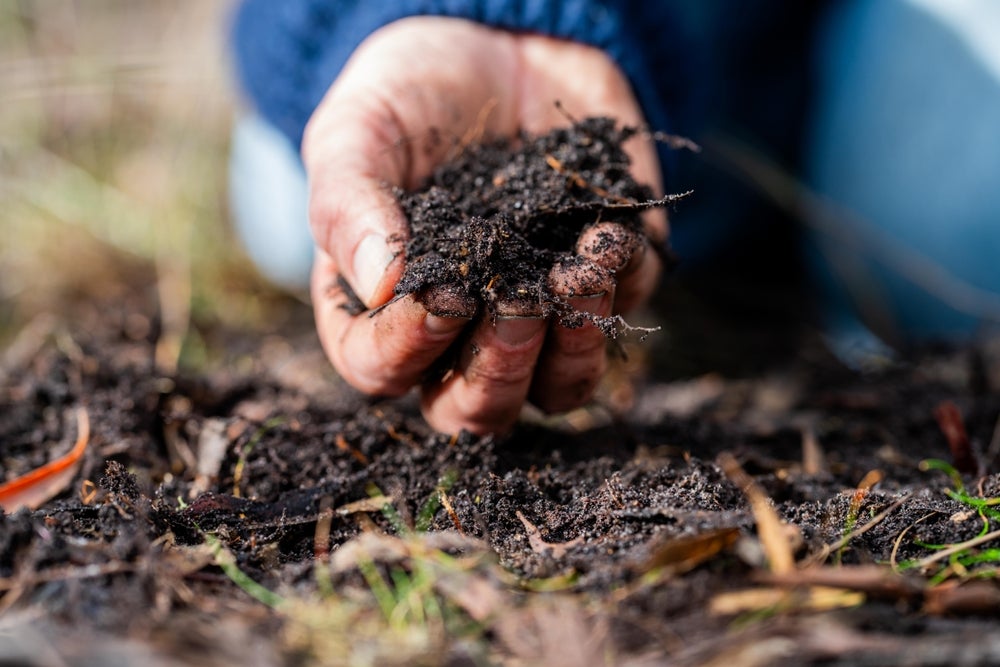Regenerative agriculture is a way of farming that improves biodiversity and promotes soil health.
From excess carbon emissions to water and soil pollution to outbreaks of crop disease, regenerative agriculture is gaining traction as a solution to many farming woes. However, the impact of nature-sensitive farming practices on mental well-being has largely been unexplored.
By improving microbial soil biodiversity, regenerative farming promotes certain bacteria that increase the human brain’s natural production of serotonin. Mycobacterium vaccae (M. vaccae) has been found to alleviate serious mental and physical suffering, and these findings must be considered by nature policymakers.
Regenerative agriculture goes a step further than sustainable agriculture
While sustainable agriculture produces food while doing the environment no harm, its regenerative counterpart seeks to actively improve ecosystems. The foundational principles of regenerative farming include keeping soil covered, maximising crop diversity, minimisng soil disturbance from heavy machinery, integrating livestock into cropping, and reducing reliance on harmful agrochemicals. These practices promote soil health and microbial biodiversity by minimising soil interventions.
There are many benefits to healthier soil. There is a growing scientific consensus that regenerative agriculture increases soil’s capacity for carbon sequestration, helping to combat extensive food system emissions. In addition, using fewer harmful agrochemicals and increasing nutrient quality helps improve the quality of crops themselves. This not only makes food tastier but also helps crops resist pests and disease—increasing food security.
Studies have suggested that a knock-on impact of regenerative farming could be an improvement in farmers’ quality of life. This is because it reduces their dependence on the advice of agrochemical companies and eventually strengthens their connection with the natural world. But farming that focuses on soil health can impact mental wellbeing in a much more direct way than this.
Soil microbes promote the brain’s natural serotonin production
M. vaccae is a microbe found in soil. When ingested, it is believed to activate the part of the brain responsible for producing mood-balancing serotonin. This property was first discovered in 2005 by Mary O’Brien, a London-based oncologist. O’Brien began an experimental therapy for lung cancer where patients were treated with M. vaccae and their immune response was monitored.
While the treatment did have a positive impact on patients’ immune systems, it also improved their mood. Depression is common in seriously ill patients, but intake of M. vaccae appeared to alleviate it. Subsequent studies on mice have shown that the bacteria activate a specific set of neurons that produce serotonin.
Soil bacteria like M. vaccae can often be detected by humans, as the earthy smell of geosmin is released when they break down organic material. The petrichor smell summoned by rain after a long dry spell is an example of this. People’s well-publicised craving for this smell shows the happiness boost of M. vaccae has not gone unnoticed—even if its name is not known by many.
Regenerative farming protects M. vaccae and other soil microbes
M. vaccae can be found naturally in almost any soil, but the use of harsh chemicals can destroy it. By restricting harmful pesticides and herbicides, regenerative agriculture allows the soil microbiome soil to flourish—including M. vaccae.
This not only benefits the mental wellbeing of farmers who work on regeneratively managed land, but that of all people living in rural communities. If nature and farming policymakers are weighing up the pros and cons of regenerative agriculture, they must not ignore soil biodiversity’s potential impact on mental health.








